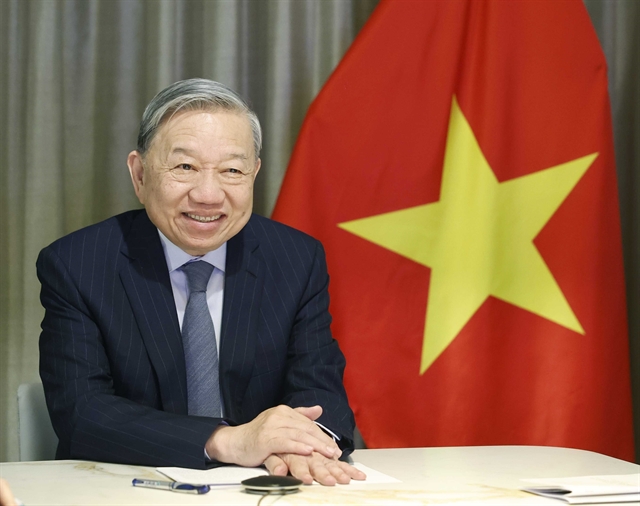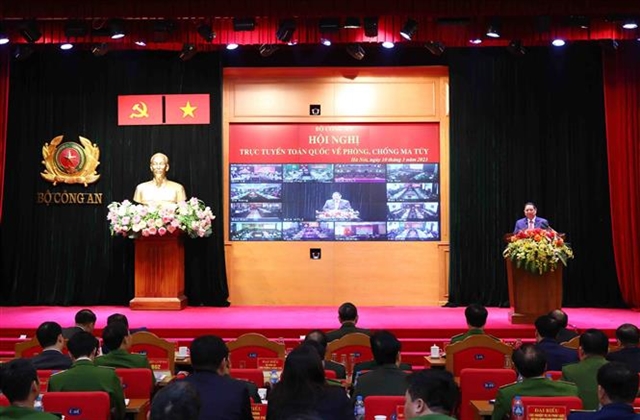 Politics & Law
Politics & Law


|
| Prime Minister Phạm Minh Chính speaks at the conference on drug prevention and control. VNA/VNS Photo |
HÀ NỘI — Prime Minister Phạm Minh Chính yesterday attended a conference to evaluate the results of drug prevention and control.
Addressing the conference, Prime Minister Phạm Minh Chính stated that drug prevention was an arduous and dangerous task, but it was also the core role of the People's Public Security force.
Drug addiction had become a major threat to mankind. Consequences caused by drug crimes were very serious in economic, cultural, social, security and defence fields, damaging human health, and at the same time threatening the stability, prosperity and permanence of each country, the PM said.
In January 2022, the National Assembly passed the Law on Drug Prevention and Control.
Looking back over the past year, Việt Nam had been implementing the law amid complicated and unpredictable developments in the world and region, while seeing the rise of many traditional and non-traditional security issues.
However, the People's Public Security force had coordinated all sectors and localities to overcome the difficulties and successfully implemented the fight against drugs.
The Prime Minister emphasised that awareness and action on drug prevention and control continued to change in a positive direction. The system of institutions, mechanisms and policies on drug prevention and control had been improved. Relevant agencies had advised the Party and State to promulgate and implement many important documents regarding the effectiveness of anti-drug work.
According to a report by the Ministry of Public Security, the police have set up and replicated good practices and self-management models for security and order. Many provinces and cities have actively developed management processes, schemes and plans for drug prevention and control that are suitable to the local characteristics.
The police force also actively dealt with drug crimes on key routes and areas; fighting many inter-provincial and transnational criminal organisations and lines; handling drug "hot spots", preventing the supply of drugs, and limiting the consequences and harm caused to society.
The management of addicts and illegal users of narcotics, detoxification and post-treatment management have been implemented from the central government to communes, wards and townships, contributing to the effective elimination of drug addiction. The number of people using illegal drugs and addicts nationwide has decreased. As of February 2023, the number of illegal drug users and drug addicts nationwide totalled 48,200 and 191,400 people, down 18,000 and 14,400 respectively compared to December 2021.
On behalf of the Government, the Prime Minister praised the efforts and contributions of the People's Public Security force in drug crime prevention, ensuring social order and safety.
In addition, the Prime Minister stated that there were some shortcomings and limitations in drug prevention and control work. Some localities had not mobilised the whole political system to participate and still lacked operating mechanisms.
The coordination between levels and branches in a number of agencies, units and localities was sometimes ineffective. In some places, the police were considered the sole force in drug prevention and control.
The Prime Minister emphasised the need to further raise awareness about drug dangers and the role of drug prevention and control. Drug prevention and control must always be under the direct leadership and direction of Party committees at all levels, and the management of governments at all levels, in which the police force is the core unit.
"Drugs are a threat to humanity and a global problem, so drug prevention must have a global approach, with close coordination between countries and international organisations. This is also a problem of the whole society, so it is necessary to have solutions to mobilise the participation of the whole political system and all classes of people." VNS




